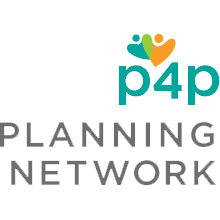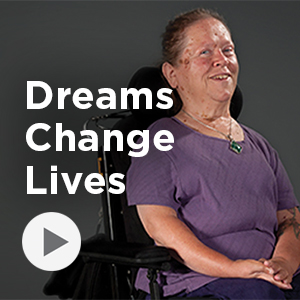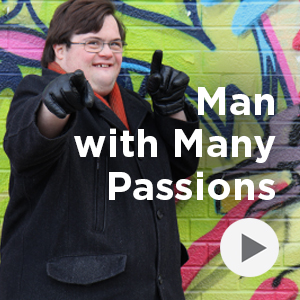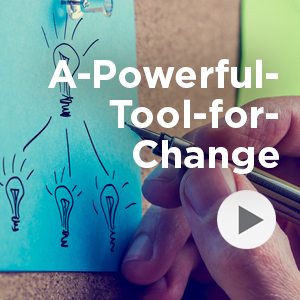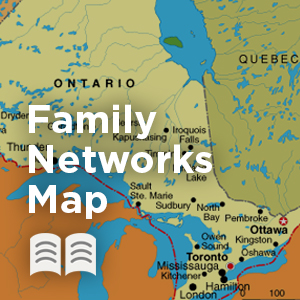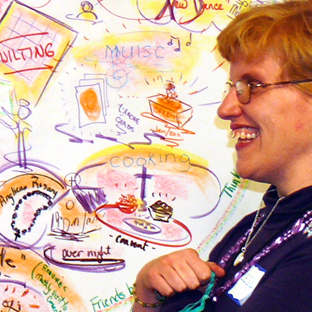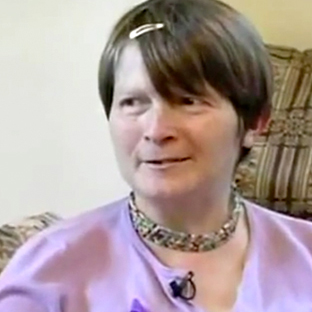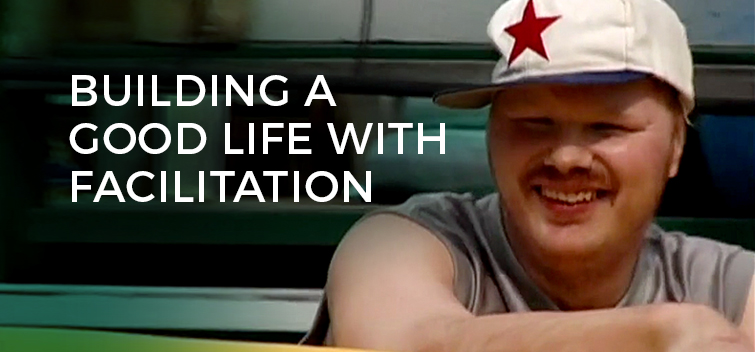
PLANNING FOR THE FUTURE
As parents, we want the same for all of our children. We want them to have opportunities to learn and grow, to have good friends and new experiences. We want them to work, volunteer and contribute to their communities in meaningful ways; to have financial security, a home of their own, and control over their lives. And as family, we want peace of mind for the future.
Every parent does what they can to support their children to have a good life but for children living with a disability, achieving these goals requires much more intention.
Our role as parents, siblings and friends is much more critical. We can’t assume that our loved ones will navigate the school system on their own; will make friends that will share their lives; will discover things that interest them; will find work and become financially independent. It is up to families and friends to lead the way with creativity and diligence. There’s a lot to learn and a lot to consider.
This is the purpose of the P4P Action Guides. Providing families with strategies, stories and practical information that will help them plan for and create a life for a relative with a disability that is without limit and full of opportunities in every sense.
It Begins with a Dream
Seems like a logical question. But for many people who are vulnerable it’s not a question they often hear because their life choices are commonly limited to the programs or services offered in their area. For example, their options may be limited to working in this special workshop, living in this group home or participating in this special disability activity. Only recently have people living with a disability had the opportunity to direct or create a life of their own choosing.
Follow Your Passions
Untapped Opportunities
Considering interests as a first step can open many untapped opportunities. Think of the many activities that could be generated from an interest in cooking: preparing meals for friends or neighbours, cooking classes and food shopping, growing and harvesting a garden, restaurant work or volunteering in a community kitchen or shelter, etc. When you find an activity you are passionate about, you can then look at developing or hiring the right supports. It’s a different approach when you build supports around personal interests, instead of just looking for “activities”. Pick a few passions or interests and brainstorm activities that are related.
New Connections
Friendships are often developed between people who share an interest or passion. If you are strategic in choosing activities that involve others, you may find new connections. Connections that may offer support or lead to new friendships.
Feeling Confident and Valued
Confidence is much greater for anyone when they care about what they’re doing and are involved with others who share their passion. People living with a disability are no different. It’s activities like these that allow a person to feel valued, connected and successful.
Julian Escallon is a man of many passions. Julian and his family and friends built upon his many interests and passions to help him create a life full of opportunity and purpose.
Person Directed Planning
At one point, Person Centred Planning was a new and exciting idea. This was in response to the fact that life plans were being made for people with a disability who were not even invited to the planning meeting. In contrast, Person Directed Planning goes one step further. Rather than simply being at the centre of a plan, it became critical that the person, with the support of their family and friends, directs the planning process.
Person Directed Planning (PDP) is much more than a simple planning process. When implemented with deep values, it’s a process that helps a person identify their gifts and strengths, enrolls others in supporting them and builds a foundation that can open up new possibilities for their lives.
Independent Facilitation
One of the challenges with Person Directed Planning is that a person is often left with a written plan with little support in implementing the plan. Independent Facilitation recognizes that planning is ongoing and once you have a plan in place, it may change as the person tries different things and learns and grows. Independent Facilitators may remain involved with the person on a long-term basis, collaborating with them as they build their lives.
Seven organizations in Ontario participated in the Independent Facilitation Demonstration Project funded by the Ministry of Community and Social Services to provide Independent Facilitation to over 1100 people and families in Ontario. While MCSS is not currently providing funding for Independent Facilitation, it is possible to utilize up to $2500 of Passport Funding for this valuable support.
Learn more about Independent Facilitation at OIFN.ca
Plan with Others - Not Alone
A Leap of Faith
For instance, it can be much easier to simply purchase a special program or service for your family member. But if you would like them to thrive, to control their opportunities, to be in relationships, to contribute and to grow - planning and intention are required.
There are numerous uplifting stories on the Planning Network featuring people with a disability and their families who are committed to creating the types of opportunities and lifestyles that will allow them to thrive.
If there is one aspect that each story shares, it is having a clear vision of a future they would like to create. Few of the families featured knew for a fact that everything would work out. In fact, many moved forward as a leap of faith. And when they experienced setbacks, their resilience was bolstered by the clarity of their vision.
Please take the time to view some of the stories below. We hope they will inspire you to create and plan your own uplifting family story.

